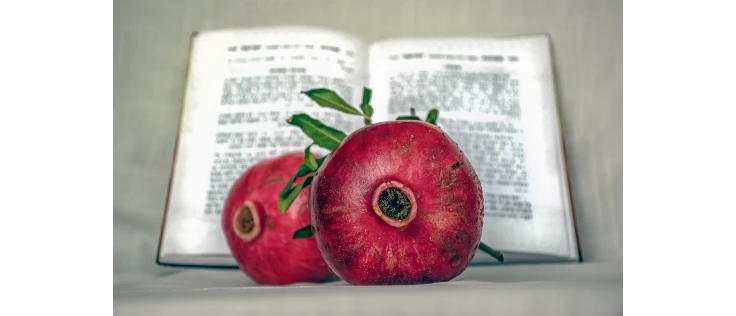|
Listen to This Blog
Getting your Trinity Audio player ready...
|
Disclosure: This post may contain affiliate links, meaning we get a commission if you decide to make a purchase through our links, at no cost to you. Please read our disclosure for more info.
Last Updated on September 24, 2024 by Canny Costumes
Rosh Hashanah, the Jewish New Year, marks a pivotal time in Jewish tradition, filled with deep religious significance, historical roots, and cultural importance. As one of the holiest days in the Jewish calendar, Rosh Hashanah is celebrated by millions around the globe. It is not only a time of reflection and introspection but also a celebration of renewal, judgment, and hope for the future. In this detailed article, we’ll explore the origins, historical evolution, rituals, and symbolic meanings of Rosh Hashanah, providing you with an in-depth understanding of this sacred holiday.
Page Contents
- The Origins of Rosh Hashanah: A Historical Overview
- The Spiritual Significance: Rosh Hashanah as a Day of Judgment
- Rituals and Customs: Shofar Blowing and Prayers
- Tashlich: Casting Away Sins
- Symbolic Foods: A Sweet New Year
- Rosh Hashanah in the Modern World
- Preparing for Rosh Hashanah: Practical and Spiritual Tips
- The Connection Between Rosh Hashanah and Yom Kippur
- Conclusion: The Eternal Message of Rosh Hashanah
The Origins of Rosh Hashanah: A Historical Overview
Rosh Hashanah has its origins rooted in the Torah, specifically in the Book of Leviticus (23:23-25), where it is referred to as Yom Teruah, the “Day of Shofar Blowing.” This biblical foundation sets the tone for what is now a two-day celebration marking the beginning of the Hebrew month of Tishrei, the first month in the Jewish civil calendar. Historically, Rosh Hashanah was regarded as the start of a ten-day period known as the Days of Awe or Ten Days of Repentance (Aseret Yemei Teshuvah), which culminates with Yom Kippur, the Day of Atonement.
In the ancient world, Rosh Hashanah was also associated with agricultural festivals, particularly the end of the summer harvest. Over centuries, it evolved from an agrarian tradition into a day of spiritual reckoning, where individuals and communities reflect on the past year, seek forgiveness, and pray for a fruitful year ahead.
The Spiritual Significance: Rosh Hashanah as a Day of Judgment
Rosh Hashanah is widely recognized as Yom HaDin, the Day of Judgment. According to Jewish tradition, this is the day when God opens the Book of Life, in which the deeds of each person are recorded. It is believed that on this day, God reviews the actions of every individual from the past year, deciding who will live and who will die, who will prosper, and who will falter in the year to come. However, this judgment is not final until Yom Kippur, allowing the faithful to engage in deep introspection and sincere repentance (Teshuvah) during the Days of Awe.
Rituals and Customs: Shofar Blowing and Prayers
One of the most distinctive elements of Rosh Hashanah is the blowing of the Shofar, a ram’s horn, which serves as a powerful symbol of awakening and renewal. The Shofar blast is intended to awaken the soul, reminding the faithful of their spiritual responsibilities. It is customary to hear 100 blasts of the Shofar during the Rosh Hashanah service, with different sounds, including the Tekiah (long blast), Shevarim (three shorter blasts), and Teruah (a series of short staccato notes).
In addition to the Shofar, the Rosh Hashanah prayer service is central to the holiday. The Musaf service includes special prayers like the Malchuyot (Kingship), Zichronot (Remembrance), and Shofarot (Shofar blasts). These prayers emphasize the sovereignty of God, the remembrance of the covenant with the Jewish people, and the anticipation of future redemption. The prayer services are deeply introspective and are meant to inspire feelings of humility, awe, and connection to the Divine.
Tashlich: Casting Away Sins
Another important tradition during Rosh Hashanah is the Tashlich ceremony, which typically takes place on the first day of the holiday. In this ritual, Jews symbolically cast their sins into a body of flowing water, usually a river or stream, by throwing pieces of bread or other small objects. This act of throwing away sins represents the desire to start the new year with a clean slate, free from the mistakes and wrongdoings of the past.
Symbolic Foods: A Sweet New Year
Food plays a vital role in Rosh Hashanah celebrations, with several symbolic foods consumed during festive meals to express hope for a sweet and prosperous new year. The most well-known custom is the dipping of apple slices in honey, symbolizing the wish for a sweet year ahead. Apples, often associated with the Garden of Eden, are considered a symbol of creation, while honey represents the sweetness of life and divine blessings.
In addition to apples and honey, other foods are also imbued with meaning. For example, pomegranates are eaten because they are said to contain 613 seeds, corresponding to the 613 mitzvot (commandments) in the Torah. Round challah bread is another common food, representing the cycle of life and the ongoing nature of creation. The head of a fish is sometimes served to symbolize the desire to be a “head and not a tail,” meaning to be leaders rather than followers in the coming year.
Rosh Hashanah in the Modern World
As Jewish communities have spread across the globe, Rosh Hashanah has been celebrated in diverse ways, depending on local customs and traditions. In Israel, the holiday is marked as a public holiday, with businesses closing, and families gathering for festive meals. In other parts of the world, such as the United States and Europe, Jewish communities come together in synagogues and homes to observe this sacred time.
The themes of renewal, repentance, and judgment resonate deeply in the modern world. Many Jews use this time to reflect on personal growth, their relationships with others, and their connection to their faith. The universal themes of Rosh Hashanah, such as self-improvement, moral accountability, and the hope for a better future, give the holiday a profound relevance in contemporary life, even beyond the Jewish community.
Preparing for Rosh Hashanah: Practical and Spiritual Tips
Preparing for Rosh Hashanah requires both practical and spiritual preparation. Practically, many Jews clean their homes, purchase special foods, and gather with family and friends. Spiritually, this period leading up to the holiday, particularly the month of Elul, is considered a time for reflection and self-examination. It is customary during this time to engage in acts of charity, seek forgiveness from those one may have wronged, and strive to mend broken relationships.
The Selichot prayers, special prayers for forgiveness, are recited during the late hours of the night or early morning in the days leading up to Rosh Hashanah, further emphasizing the importance of repentance and introspection.
The Connection Between Rosh Hashanah and Yom Kippur
While Rosh Hashanah begins the Days of Awe, it is closely linked with Yom Kippur, which takes place ten days later. Together, these two holidays form the High Holy Days, a time of heightened spirituality, repentance, and connection to God. While Rosh Hashanah is a celebration of the world’s creation and a time of judgment, Yom Kippur is the day of atonement, when individuals have the final opportunity to make amends for their actions and seek divine forgiveness.
The relationship between these two holidays underscores the Jewish belief in the balance of justice and mercy. On Rosh Hashanah, God judges humanity, but on Yom Kippur, that judgment can be sealed or altered based on the actions and prayers of the individual.
Conclusion: The Eternal Message of Rosh Hashanah
Rosh Hashanah is more than just a new year celebration; it is a profound time of introspection, renewal, and spiritual awakening. Its rituals, prayers, and customs encourage Jews worldwide to reflect on their past deeds, seek forgiveness, and look forward to a year filled with blessings and opportunities for growth. Whether observed through prayer, festive meals, or the blowing of the Shofar, the messages of Rosh Hashanah continue to resonate through time, offering an enduring reminder of the power of reflection, repentance, and hope.










